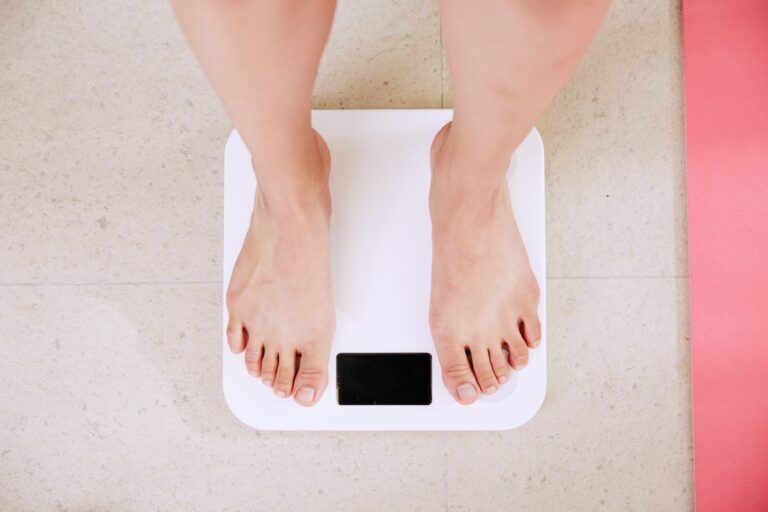Understanding the Role of Hormones in Weight Loss and Metabolism
Are you struggling to lose weight despite following a strict diet and exercise routine? Have you ever wondered why some people seem to shed pounds effortlessly while others struggle no matter what they do? The answer may lie in your hormones. Hormones play a vital role in regulating our metabolism and influencing how we store and use energy. Understanding how these complex chemical messengers work can be the key to unlocking long-term weight loss success.
In this blog post, we’ll dive into the fascinating world of hormones and explore their impact on weight loss and overall health. Get ready for an eye-opening journey that will change the way you think about your body’s inner workings!
What are hormones?

Hormones are chemicals that are released by the body to regulate different aspects of our behavior. They’re responsible for things like regulating our appetite, promoting sexual activity, and controlling how fast our muscles grow. When it comes to weight loss and metabolism, hormones can play an important role by helping to control your cravings and energy levels.
For example, testosterone is the male sex hormone that’s responsible for helping to increase muscle mass and decrease body fat. Meanwhile, estrogen plays a key role in moderating the level of calories you burn. And while there are a variety of different hormones out there, all of them work together to help us achieve our goals.
What are their roles in weight loss and metabolism?
Hormones are essential for proper function of the body’s metabolism. They influence how our body burns calories and stores fat. There are three main hormones involved in maintaining weight and metabolism: insulin, glucagon and catecholamine. Insulin helps reduce the amount of sugar in the blood by helping to take up glucose from the food we eat. Glucagon raises blood sugar levels when we need more energy. Catecholamines are chemicals that help control heart rate, blood pressure and other functions in the body.
All three hormones play an important role in weight loss and maintaining a healthy metabolism. If you have an underactive thyroid, your body may not be able to properly produce these hormones, which can lead to weight gain and difficulty burning calories.
How can I increase my daily intake of essential vitamins and minerals?
Some essential vitamins and minerals are found in whole food while others are found in supplements. The best way to increase your intake of these nutrients is to include a variety of foods and supplements in your diet. There are a number of foods that are high in certain essential vitamins and minerals, including leafy greens, legumes, nuts and seeds. You can also take supplements that provide these nutrients. Make sure to talk to your healthcare provider about which supplements are the best for you.
How do hormones impact your appetite and food intake?
Hormones play an important role in overall health and well-being. They are proteins and molecules that are released by the body to regulate various functions, including energy production, mood, reproduction, and other physiological processes.
There are many hormones that are involved in weight loss and metabolism. Ghrelin is a hormone that plays an important role in the regulation of appetite and food intake. Ghrelin is produced by the stomach when food is not consumed or when there is insufficient nutrients available to meet the body’s demand. ghrelin signals the body to increase hunger and seek out food.
Metabolism is the major process that burns calories to produce energy. The hormones insulin and leptin play an important role in the regulation of metabolism. Insulin helps cells take up sugar from the bloodstream for use as fuel, while leptin signals fat cells to store energy rather than releasing it into the bloodstream. Together, these two hormones help control how much energy we expend throughout the day.
Hormones also play a role in the sensations of hunger and fullness. Hunger is a feeling of need or craving for food, while fullness is a sensation caused by the body’s feeling of having enough food. Hormones like ghrelin and leptin are responsible for setting off the signals that tell your brain when you’re hungry and how much food you need to eat to satisfy that hunger.
Overall, hormones are important for regulating appetite and food intake. They work cooperatively with other hormones and chemicals in the body to help control our cravings and prevent overeating.
How do hormones impact your mood and energy levels?
Hormones play an important role in metabolism, mood, and energy levels. There are several different types of hormones, including sex hormones (e.g. estrogen, testosterone), growth hormone, thyroid hormones, and adrenal hormones.
Sex hormones impact metabolism by influencing the way that food is digested and used for energy. Estrogen helps to break down fat, while testosterone helps to increase the amount of muscle mass and decrease body fat. Growth hormone plays a role in muscle growth and maintenance, as well as blood sugar control. Thyroid hormones affect how quickly the body burns calories and regulate other functions such as stress management. Adrenal hormones are responsible for maintaining blood sugar levels and stabilizing energy production throughout the day.
Regularly monitoring your hormone levels can help you better understand your body’s response to dietary changes and weight loss efforts. By understanding which hormones are important for your health, you can make better decisions about how to balance your own hormone levels with those of optimal health.
Hormones are important for overall health and well-being. Understanding how they impact mood and energy levels can help you to maintain a healthy lifestyle.
For more information, please consult a health professional.
How do hormones impact your body composition?
There are a number of hormones that have been linked to changes in body composition and weight. These hormones can play an important role in how our bodies use and store energy, as well as interact with the regulated function of our metabolism. Here’s a closer look at some of the most common hormones involved: estrogen
Estrogen is a hormone produced by the ovaries, and it has multiple effects on the body. estradiol, the primary form of estrogen, is linked to increased belly fat storage and decreased muscle mass. Additionally, estrogen may decrease your ability to burn calories and increase your risk for developing obesity or other chronic diseases such as heart disease. While much research still needs to be done on estrogen’s relationship to weight gain, Making Sense of Science notes that “the preponderance of evidence suggests that high endogenous levels [of estradiol] are associated with obesity or metabolic abnormalities.”
Testosterone:
Testosterone is another hormone that plays an important role in body composition. While testosterone doesn’t directly impact weight gain or loss, it does have indirect effects on both outcomes. For example, higher levels of testosterone have been linked with greater muscle mass and lower levels of body fat. Additionally, testosterone may help initiate metabolic processes that help you burn more calories throughout the day – something that could contribute to weight loss success. Given all these benefits, it’s clear why testosterone is often prescribed to men struggling with obesity or overweight issues.
There are also a number of other hormones that have been linked to changes in body composition and weight. For example, growth hormone (GH) is responsible for helping your bodyabolize food and create energy. While GH has been shown to have a number of health benefits, including promoting muscle growth and helping you burn more calories, high levels of GH have also been linked with weight gain.
While hormones play a role in how our bodies use and store energy, they don’t necessarily drive overall weight gain or loss. Ultimately, it will be up to each individual to determine how these hormones impact their body composition and weight.
Conclusion
Have you ever wondered why some people seem to easily lose weight while other struggle for years? The answer may lie in the hormones that influence our metabolism. By understanding how these hormones work, you can make better decisions about which foods to eat and exercise routine to follow in order to achieve successful weight loss. In the end, it’s all about creating a healthy balance in your body by eating right and exercising regularly – two things that are easy to do if you understand how your hormones work. Thanks for reading! We hope this article has given you a little more insight into what goes on behind the scenes when it comes to achieving great weight loss results.







One Comment